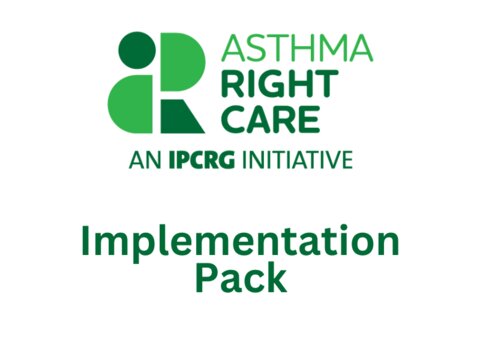Asthma Right Care Implementation Pack Introduction

Introduction
If you want your country group to join the Asthma Right Care Movement you've come to the right place! Here are all the resources you need to get started.
Background: what is Asthma Right Care?
In October 2017 the International Primary Care Respiratory Group (IPCRG), a clinically-led charity that works locally in primary care in over 30 countries and collaborates globally to improve respiratory health, initiated Asthma Right Care with AstraZeneca support in four pilot countries.
Goal: to get the conversation going about the need at policy and clinical levels to relook at asthma management and move from a state of comfort to discomfort with the present state. And then, once people were ready to ask "how can we do better" to offer options for right care.
Method: to apply the evidence from social movements for health1, achieving large scale change2 and “right care”3 to asthma to achieve what standard publication, education and advocacy programmes have failed to do: get people reflecting on their current practice, and requesting information and support to do better.
Priority: the problem we decided to tackle first was the over-reliance by patients and clinicians on symptom relief. In particular, we wanted conversations about over-reliance on short-acting beta-agonists (SABA) for asthma management despite the evidence for the use of inhaled corticosteroids, and the numbers of inhalers of SABA prescribed and/or used significantly exceeding national and international guidelines.
To date IPCRG has:
- Piloted the Asthma Right Care programme in four countries and three languages www.ipcrg.org/asthmarightcare
- Designed and tested a set of highly effective conversation starters on the topic of the over-reliance on symptom relief, particularly using short-acting beta agonists, for asthma management, including the asthma slide rule and readiness ruler and question and challenge cards
- Spread the message to:
- New geographies,
- New parts of the healthcare system through engagement with more professional and patient groups particularly community pharmacists who are real champions
- Affect behaviour change through triggering personal reflection
- Adopted the “Network secrets of great change agents”4 for achieving big change, which recognises the importance of giving a central role to informal networks like IPCRG rather than formal hierarchies, and the need to bridge networks between disconnected groups rather than using cohesive networks
- Reached over 10,000 frontline healthcare professionals and global primary care leaders
- Reached policy-makers eg August 2018 WHO-GARD presentation https://gard-breathefreely.org/ppt2018/ to national representatives from over 40 countries
- Created this Implementation Pack with “how to guides” to enable new local delivery teams to start up







